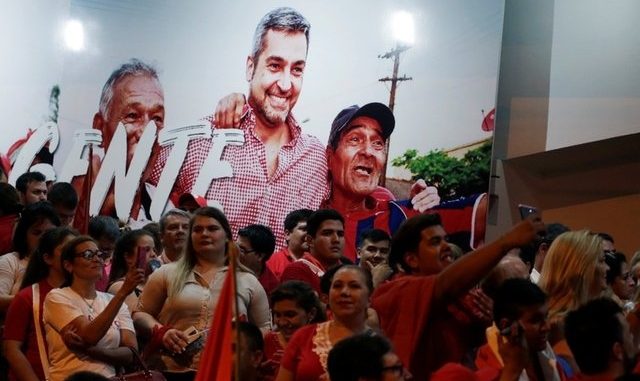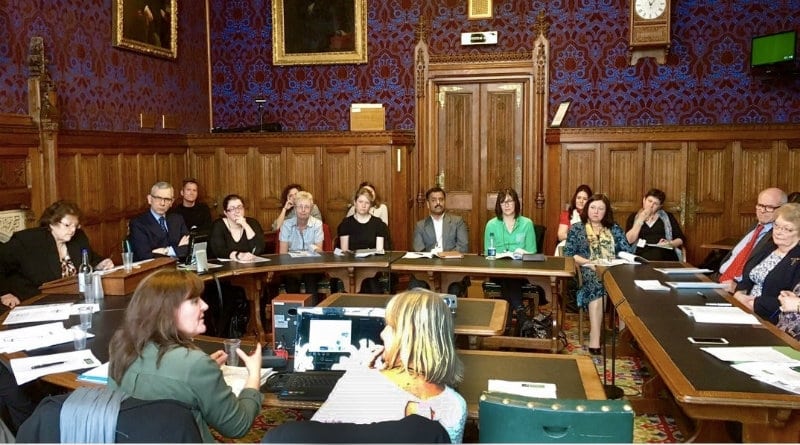
By Thorin Engeseth
The new President-elect of Paraguay Mario Benítez will be inaugurated on August 15. Why did Paraguay vote yet again for the Colorado Party, and what does this mean for the South American country’s near future?
For more than 130 years the Colorado Party has been firmly established within Paraguayan politics, 72 of which it has spent governing. At times it has been the only legal political party. It was the party of military ruler Alfredo Stroessner during his 35 years in power, and there have since been only two presidents from different parties since Stroessner was ousted in 1989: the Christian Democrats’ Fernando Lugo (2008-2012) and the PLRA’s Federico Franco (2012-2013).
Mario Benítez is himself the son of Stroessner’s private secretary.
One reason for adherence to the party is that Paraguay traditionally lacks the political diversity of its neighbors. Since 1989 five different parties or alliances have held office in Argentina, Brazil and Bolivia. Paraguay, by contrast, has been governed by one far-right party for 24 of the last 29 years.
Another reason is its relationship with Brazil. Relations between the two neighbors have long been contentious, primarily because of the high population of Brazilian farmers on Paraguayan land, and Paraguay’s obligation to provide hydroelectric power to its much larger neighbor.

The third reason can be attributed to social structures and issues. Discrimination against migrants, women and LGBT communities in Paraguay is officially illegal, although widespread. President Horacio Cartes has publicly stated that he “would shoot [himself] in the bollocks” if he were to discover he had a homosexual son. The Colorado Party has done little to implement the legal protections of children, migrants and other groups facing discrimination, which is attractive to a conservative, largely Roman Catholic voter base.
These are the same voters who witnessed Paraguay’s suspension from the Mercosur trade bloc in 2012, and who feel tithed to a more influential Brazil. A vote for Benítez, who proposes stricter border patrols, signifies to some extent opposition to Brazilian and Venezuelan migration.
A right-wing Paraguay would be unlikely to see eye to eye with a Brazil governed by Jair Bolsonaro, the controversial populist leading in the polls there. With relations between Paraguay and Brazil as fragile as they are, and only mended by recently imprisoned former President Lula, Paraguay following the same path it always has may indirectly detriment South American trade.
Many of the human rights abuses committed under the Stroessner regime are not uncommon among Paraguay’s police, ranging from kidnapping to extortion. The groups who most commonly extort their subordinates and civilians, namely law enforcement and the military, are not likely to bite the hand that feeds them.
It is under these circumstances that Paraguay was expected to vote for, and will in two months inaugurate, Mario Benítez. Benítez, while expressing disapproval of the human rights abuses committed during the Stroessner years, has also claimed that the former dictator “did a lot for the country”.
It is highly unlikely that Paraguayan corruption will suffer under a Benítez government. While Brazil faces an uncertain future, Argentina gravitates toward more progressive-centrist policies, and Bolivia continues on its own unique albeit bumpy path of indigenous and environmental progressivism, Paraguay faces another five years of the status quo. This appears just fine with the general public.



